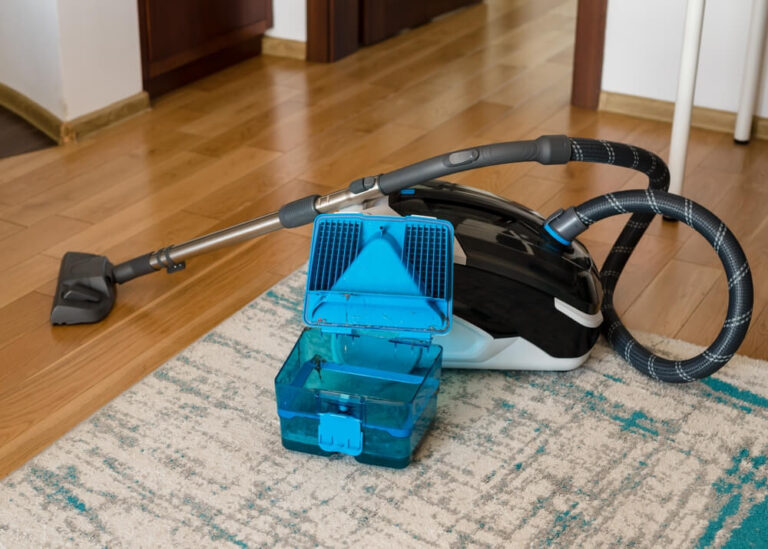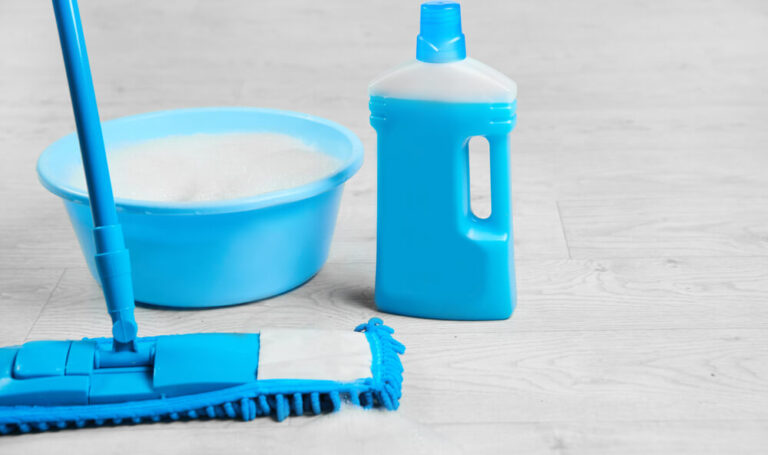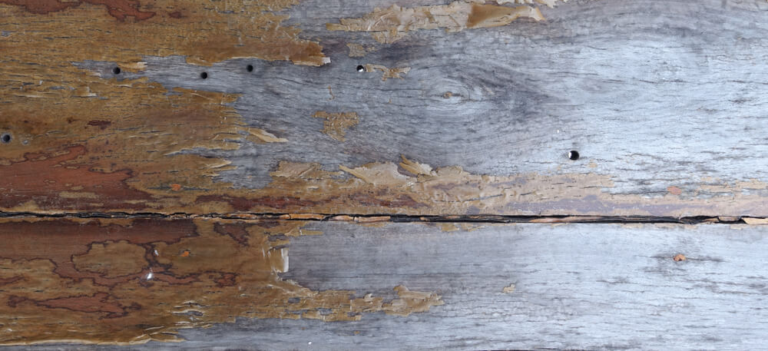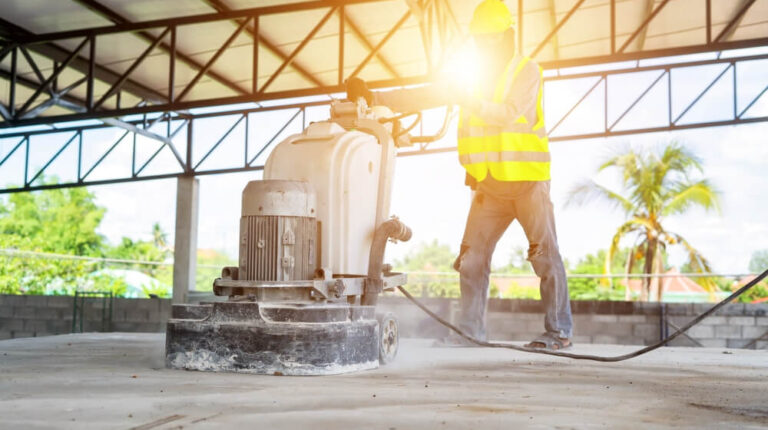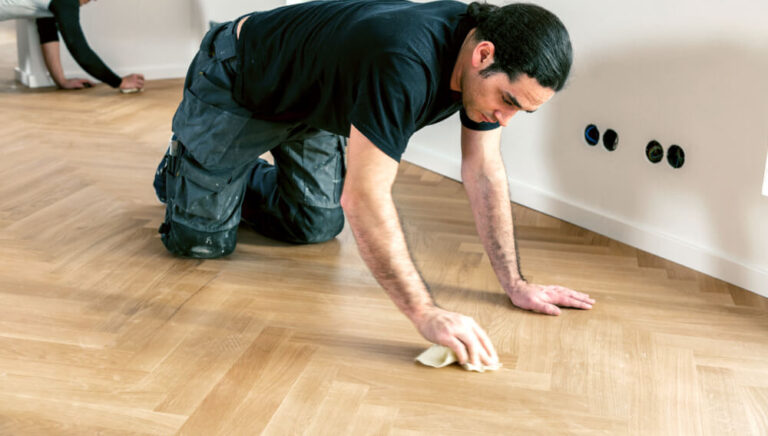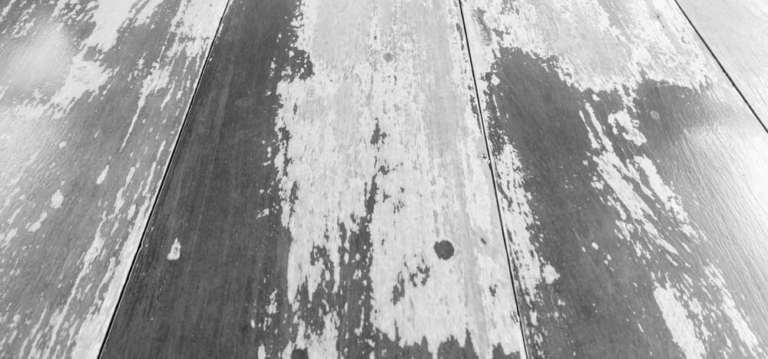
No doubt, Hardwood floors add warmth and elegance to any home, but maintaining their beauty requires careful cleaning to avoid damage. People are usually confused about the right way of cleaning hardwood floors. They usually ask, “Can you use a steam cleaner on hardwood floors?”
Using a steam cleaner on hardwood floors is not recommended. The moisture and heat can lead to warping, swelling, and potential damage. It may void warranties and isn’t suitable for all finishes. Opt for safer cleaning methods to preserve the integrity and longevity of your hardwood floors.
Being hardwood flooring experts, we will help you delve into the advantages and disadvantages of using steam cleaners on hardwood floors, providing valuable insights for homeowners seeking an effective and safe cleaning method.
Can You Use A Steam Cleaner On Hardwood Floors?
The relationship between hardwood floors and steam cleaners is a delicate one, riddled with potential pitfalls. Let’s dive deep into the murky waters of steam cleaning hardwood floors and emerge enlightened (and floor-safe).
Hardwood, though resilient, is naturally susceptible to moisture. Excessive steam can seep into cracks and gaps, causing the wood to swell, warp, and potentially crack. This can lead to discoloration, cupping, and even permanent damage.
Sealed hardwood floors have a better chance of withstanding some steam, but even that’s not a guarantee. The seal itself can be compromised by the heat and humidity, leading to premature wear and tear. Unsealed hardwood floors, however, are absolute no-go zones for steam cleaners.
Also Read: hardwood floor sealers
The intense heat of steam can be detrimental to the protective finishes on your hardwood floors. Wax can melt, lacquer can dull, and polyurethane can lose its shine, leaving your floors vulnerable to further damage.
Benefits of Steam Cleaning Hardwood Floors
Give below are some pros of using steam mops on wooden floors:
Efficient Cleaning
Steam cleaners are known for their ability to provide deep and thorough cleaning. The hot steam effectively lifts dirt, grime, and stains from the surface of hardwood floors without the need for harsh chemicals.
Environmentally Friendly
Steam cleaning is considered environmentally friendly as it typically uses only water to generate steam. This eliminates the need for chemical-based cleaners that may be harmful to both the environment and residents.
Kills Germs and Bacteria
The high temperatures produced by steam cleaners are effective in killing germs and bacteria present on the hardwood surface. This can contribute to a healthier indoor environment, especially for individuals with allergies or respiratory issues.
Time-Saving
Steam cleaning is a relatively quick process, allowing homeowners to clean their hardwood floors efficiently. The steam not only cleans but also dries quickly, reducing the overall cleaning time.
Cons of Using a Steam Cleaner on Hardwood Floors
Moisture Damage
Excessive moisture is the primary concern when using steam cleaners on hardwood floors. Hardwood is sensitive to water, and prolonged exposure to moisture can lead to warping, swelling, and damage to the wood fibers.
Risk of Delamination
Hardwood floors are often composed of layers of wood glued together. The intense heat and moisture from a steam cleaner can weaken the adhesive, leading to delamination – separation of the layers.
Voided Warranty
Many hardwood floor manufacturers explicitly state in their warranty guidelines that the use of steam cleaners voids the warranty. This highlights the potential risk associated with steam cleaning and its impact on the longevity of the flooring.
Not Suitable for All Finishes
Certain hardwood floor finishes, such as wax or oil-based finishes, may not be compatible with steam cleaning. Steam can strip away these finishes, leaving the wood exposed and susceptible to damage.
Factors On which Steam Cleaning Hardwood Floors Depend
The use of steam cleaner on hardwood floors depends on several factors:
Floor type
Engineered hardwood floors are even more vulnerable to moisture damage than solid hardwood. Avoid steam cleaning them altogether.
Sealing status
Only consider steam cleaning if your hardwood floors are properly sealed and in good condition.
Steam cleaner settings
Opt for the lowest possible steam setting and avoid hovering the mop for too long in one spot.
Test patch
Always test the steam cleaner on a small, inconspicuous area before tackling the entire floor.
Tips for Safely Using a Steam Cleaner on Hardwood Floors
Check Manufacturer Guidelines
Always refer to the manufacturer’s guidelines for your specific hardwood flooring. Some manufacturers may explicitly advise against the use of steam cleaners.
Choose the Right Steam Cleaner
If you decide to use a steam cleaner, select one with adjustable steam settings and ensure it has a hardwood floor attachment. This allows you to control the amount of steam and prevent excessive moisture.
Regular Maintenance
To minimize the risk of damage, perform regular maintenance on your hardwood floors. Sweep or vacuum regularly to remove loose dirt and debris before steam cleaning.
Test in an Inconspicuous Area
Before using a steam cleaner on the entire floor, test it in a small, inconspicuous area to check for any adverse reactions.
Alternative Cleaning Options for Hardwood Floors
- Microfiber mop with a damp (not wet) cloth and hardwood floor cleaner.
- Dust mop or broom for regular cleaning.
- Professional cleaning by a company specializing in hardwood floors.
Also Read: best mop for hardwood floors with dogs
Remember
When in doubt, always prioritize the safety and longevity of your hardwood floors. Err on the side of caution and stick to more gentle cleaning methods unless you’re absolutely confident in your steam cleaner and sealing status.
Bonus Tip
Regularly maintain your hardwood floors with proper polishing and waxing to enhance their resistance to moisture and wear and tear.
By understanding the risks and rewards, you can make an informed decision about whether steam cleaning is the right fit for your beloved hardwood floors. Happy cleaning, but tread carefully with the steam!
FAQs
Are Steam Cleaners Safe For Hardwood Floors?
Steam cleaners are not recommended for hardwood floors. The high heat and moisture can cause damage, leading to warping and swelling.
Can I Use Shark Steam Mop On Hardwood Floors?
Using a Shark steam mop on hardwood floors is risky. The intense heat and moisture may damage the wood, potentially voiding warranties.
What Is The Best Way To Clean Hardwood Floors?
The best way to clean hardwood floors is using a damp mop with a mild cleaning solution specifically designed for wood floors.
What Floors Should Not Be Steam Cleaned?
Avoid steam cleaning unsealed, laminate, or engineered wood floors, as the moisture can cause irreparable damage.
Is Steaming Your Floors Better Than Mopping?
Steaming floors is generally better than mopping for deep cleaning, as steam can effectively sanitize and remove dirt without excess moisture.
What Steam Mop Is Good For Hardwood Floors?
Bissell PowerFresh and O-Cedar Microfiber Steam Mop are excellent choices for safely cleaning hardwood floors with steam.
Can You Steam Clean Hardwood Floors With Vinegar?
While vinegar is a natural cleaner, it’s not recommended for steam cleaning hardwood floors. The acidity can damage the finish and wood over time.
How Often Can I Steam Clean My Hardwood Floors?
Limit steam cleaning hardwood floors to once or twice a month to prevent potential moisture damage.
How To Fix Steam Mop Damage Hardwood Floors?
Repair steam mop damage on hardwood floors by sanding and refinishing the affected area to restore the floor’s appearance.
Can You Use A Steam Mop On Sealed Hardwood Floors?
Using a steam mop on sealed hardwood floors is generally safe, but it’s crucial to follow manufacturer guidelines and avoid excessive moisture.
Conclusion
While steam cleaners can be efficient in cleaning hardwood floors, caution must be exercised due to the potential for moisture damage. Homeowners should weigh the pros and cons, adhere to manufacturer guidelines, and take necessary precautions to ensure the longevity and beauty of their hardwood floors. If in doubt, consult with flooring professionals for personalized advice on maintaining your specific hardwood flooring.

